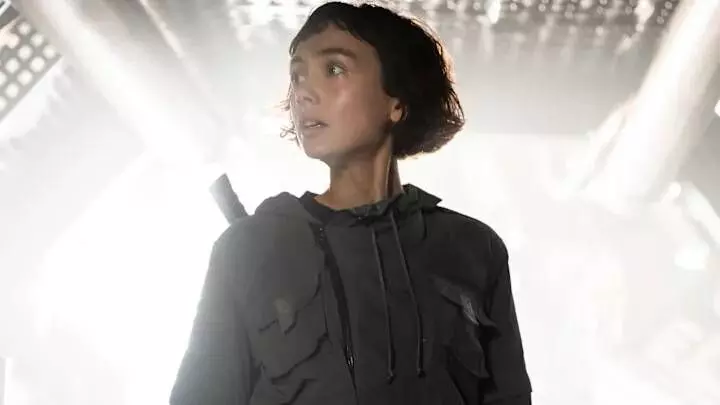‘Alien: Earth’ Is a Terrifying Prequel With a Surprising Set of Interests: TV Review
Discover the FX/Hulu series 'Alien: Earth.' This review highlights Noah Hawley's unique prequel, focusing on human-synthetic hybrids and consciousness, using Xenomorphs as a catalyst for deeper sci-fi themes.
‘Alien: Earth’ Is a Terrifying Prequel With a Surprising Set of Interests: TV Review

Noah Hawley's latest venture, "Alien: Earth," for FX and Hulu, isn't just another chapter in the iconic sci-fi horror saga; it's a bold reimagining that uses the familiar Xenomorph universe as a springboard for profound explorations of humanity, consciousness, and artificial intelligence. Set in 2120, a mere two years before the fateful journey of the Nostromo, the series cleverly positions itself as a terrifying prequel with an unexpected focus.
A Dual Genesis in a Corporate World
The show's narrative is propelled by two intertwined "inciting incidents." The first is the dramatic crash of the research vessel Maginot onto Earth, unleashing a terrifying array of extraterrestrial specimens, including the infamous Xenomorphs, upon a densely populated planet. This sets the stage for the body horror the franchise is known for, but it quickly becomes a backdrop for Hawley's true interest.
The second, and arguably more central, catalyst is the pioneering work of Prodigy, a mega-corporation rivaling the omnipresent Weyland-Yutani. Prodigy has achieved a groundbreaking feat: the creation of the first human-synthetic hybrids by implanting pre-existing human consciousness into artificial bodies. Their initial subjects are terminally ill children, whose desperate parents consent to a project promising eternal life. This introduces a new layer of ethical and philosophical complexity, shifting the focus from biological horror to the very definition of being human.
Characters at the Crossroads of Consciousness
At the heart of this exploration is Wendy (Sydney Chandler), formerly Marcy, a young cancer patient who becomes the first successful hybrid. Renaming herself after the eldest Darling child from "Peter Pan," Wendy's journey of self-discovery is mirrored by other hybrids, who adopt the names of Peter's Lost Boys. Their precocious creator, Boy Kavalier (Samuel Blenkin), a cavalier trillionaire, embodies a Peter Pan-like reluctance to conform, further emphasizing the show's literary influences.
Overseeing these new beings is Kirsh (Timothy Olyphant), an older-generation synthetic whose dry wit and stark white hair offer a refreshing contrast to his usual lawman roles. Kirsh encourages the hybrids to embrace their unique nature, seeing their fear as an animalistic trait they can transcend. Wendy, with her blend of childlike naiveté and burgeoning self-awareness, stands distinct from both Kirsh's detachment and the fragility of her human brother, Hermit (Alex Lawther), a Prodigy medic.
Beyond the Xenomorph: A Study of Sentience
"Alien: Earth" initially sidesteps the well-trodden ground of Xenomorph life cycles, assuming audience familiarity. When a classic "Alien" scenario unfolds mid-season, it feels less like the show's core purpose and more like a necessary nod to the franchise's roots – a duty performed by Hawley before diving back into his preferred themes.
What truly captivates is the show's deep dive into what happens when humanity is "refracted through a machine." The hybrids, with their adult inorganic bodies housing children's minds, exhibit charmingly simplistic language and retain youthful mannerisms, snickering at swear words and referring to Xenomorph eggs as "omelets." This unique perspective allows for a fresh take on a common sci-fi trope.
Hawley cleverly exploits a loophole in the Alien universe's lore: synthetics are not natural prey for Xenomorphs, as they lack flesh. This practical advantage allows the hybrids to navigate the alien threat with a different dynamic. More importantly, it opens a philosophical avenue: both the aliens and the hybrids are treated as experiments, contained and controlled by humans. This shared status suggests a deeper connection between the two "inhuman" groups, raising intriguing questions about the "jailers" and the lines they draw.
A Visually Rich and Thought-Provoking Experience
The series benefits from a substantial investment from FX, evident in its lavish production design. Andy Nicholson's work creates striking visuals, such as the crashed Maginot vessel embedded within a high-end shopping center. New alien designs, including a terrifying parasitic eyeball that hijacks the nervous system, contribute to the horror, though the review notes that nothing quite matches the indelible impact of the original chestburster.
Ultimately, "Alien: Earth" recognizes that while the voracious monsters provide immediate terror, it's the complex inner lives of the synthetics—thrilled, terrified, and destabilized by their new existence—that offer a richer, more sustainable narrative for a multi-season television series.
The first two episodes of "Alien: Earth" premiere on FX and Hulu on August 12 at 8 PM ET, with new episodes airing weekly on Tuesdays.

